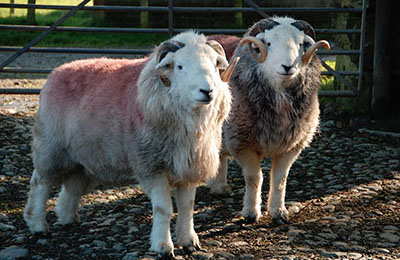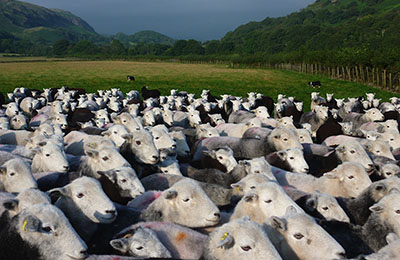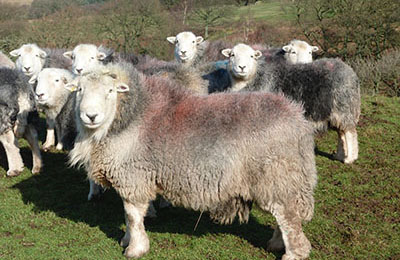The data we published on the genetic distinctiveness of three UK hill breeds of Heritage Sheep opened up a series of new research projects.
These are focussing on the Herdwick sheep breed. Herdwick fell farming is of central importance to the environment and economy of The Lake District.
The significance of Herdwicks to maintain the landscape was explicitly recognised in the recently awarded World Heritage Site Status of the region.
We are now undertaking research to identify the basis for ‘local adaptation’. How do these sheep flourish in a particular environment and habitat.
For Herdwicks, their extreme hardiness enables them to adapt to the high fells. But what is the genetic basis for this adaptation? These are fundamental questions in biology, but also provide the foundation for a sustainable agriculture that respects the well-being of the environment.
There is considerable urgency if we are to ensure a future of valuable genetic resources. Sheep are being removed relentlessly from the fells in very large numbers, destroying an agropastoral system that has actively sustained a managed farmed landscape for hundreds of years.
Working with the Herdwick Sheep Breeders Association, Agricultural Societies and specialists in sheep genetics, genomics, bioinformatics and computer programming, we have been devising new approaches to identifying key selective pressures leading to the Herdwick sheep we see today.
This foundation is based on genotyping key production genes in the Herdwicks, and comparing them with Heritage Sheep Breeds adapted to very different environmental conditions. It is a large scale and complex project, in progress for several years, but the outputs are crucial to demonstrate the significance of the Herdwicks and other locally adapted breeds – both to their own regions but also through application of our findings to the general sustainability of mainstream sheep farming. .



The Sheep Trust is collaborating with geneticists, developmental biologists and environmentalists to understand more about the genetics of the Herdwicks, their origins and their adaptive fitness traits that will be of considerable use to the future of farming and national food security.